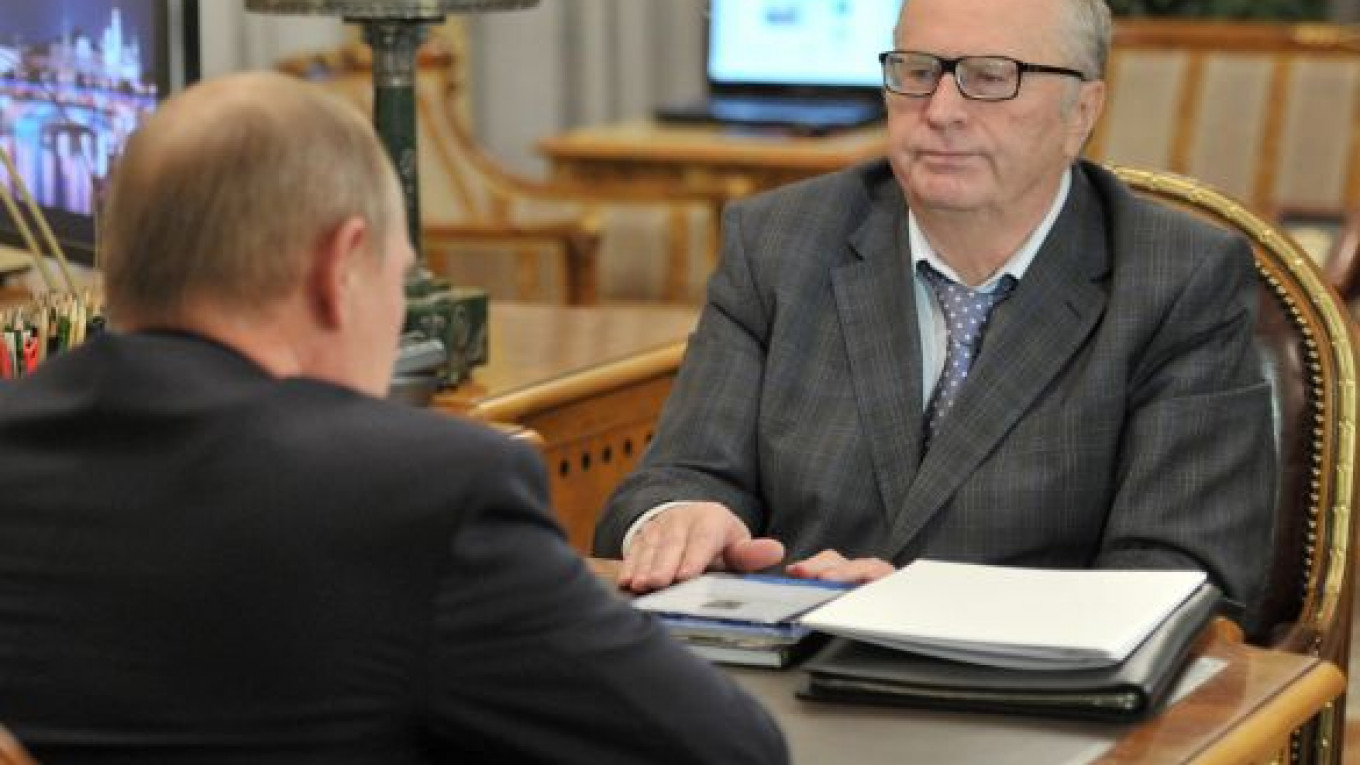President Vladimir Putin has urged Liberal Democratic Party leader Vladimir Zhirinovsky to show more restraint in his speeches, most likely in reference to the lawmaker's recent remarks about the North Caucasus that provoked outrage in the region.
Zhirinovsky said during a television show last month that the North Caucasus should be surrounded with a barbed wire fence and that a tax should be imposed on its residents if they have a third child.
"You have a loyal electorate, which has been formed over two decades, and I don't think you need to appeal to a specific part of your electorate to strengthen your position at the expense of our country's fundamental interests," Putin told Zhirinovsky in a meeting Wednesday, according to transcripts on the Kremlin's website.
During the meeting, Zhirinovsky proposed placing greater responsibility on employers hiring migrant workers and tightening control over yearly government quotas for foreign employees.
The government this week authorized the distribution of more than 1.6 million work permits for foreigners, including more than 275,000 unskilled laborers, in 2014.
But employers must "first hire only our citizens," Zhirinovsky said. "Or there must be conditions: There must be a workers' dormitory, health service, regular pay, maybe even cultural recreation — take them to museums — so that it's not profitable for the employer to bring in laborers" from abroad.
Putin said that Zhirinovsky's suggestions were "viable" and that they reflected many other countries' migration policies.
The key to safeguarding Russia's interests is for "everyone to observe the law," and to ensure that migrants show unconditional respect for the laws, customs, and cultures of the regions they want to settle in, Putin said.
However, it was unclear whether Putin planned to amend migration laws to help meet these requirements. While the Kremlin's transcript shows that Putin spoke in favor of tightening Russian migration laws, Interfax reported that Putin opposed adjusting existing laws during Wednesday's meeting.
A Message from The Moscow Times:
Dear readers,
We are facing unprecedented challenges. Russia's Prosecutor General's Office has designated The Moscow Times as an "undesirable" organization, criminalizing our work and putting our staff at risk of prosecution. This follows our earlier unjust labeling as a "foreign agent."
These actions are direct attempts to silence independent journalism in Russia. The authorities claim our work "discredits the decisions of the Russian leadership." We see things differently: we strive to provide accurate, unbiased reporting on Russia.
We, the journalists of The Moscow Times, refuse to be silenced. But to continue our work, we need your help.
Your support, no matter how small, makes a world of difference. If you can, please support us monthly starting from just $2. It's quick to set up, and every contribution makes a significant impact.
By supporting The Moscow Times, you're defending open, independent journalism in the face of repression. Thank you for standing with us.
Remind me later.






